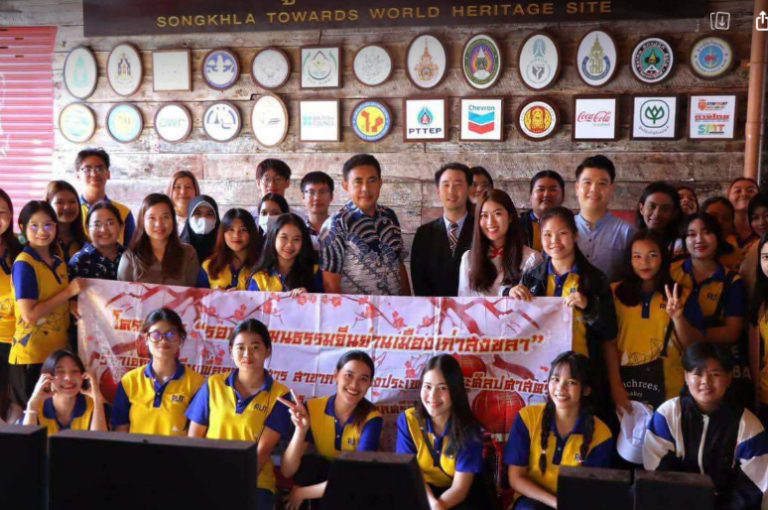Reporters : Mr. Sujinda Saehan, Mr. Ekkajak Intarat, Mr. Nitigon Jumniansuk, Mr. Thaksin Jeensuksang
Indicator : 6.3.1,6.3.2
Date : November 22, 2022
Related SDGs:
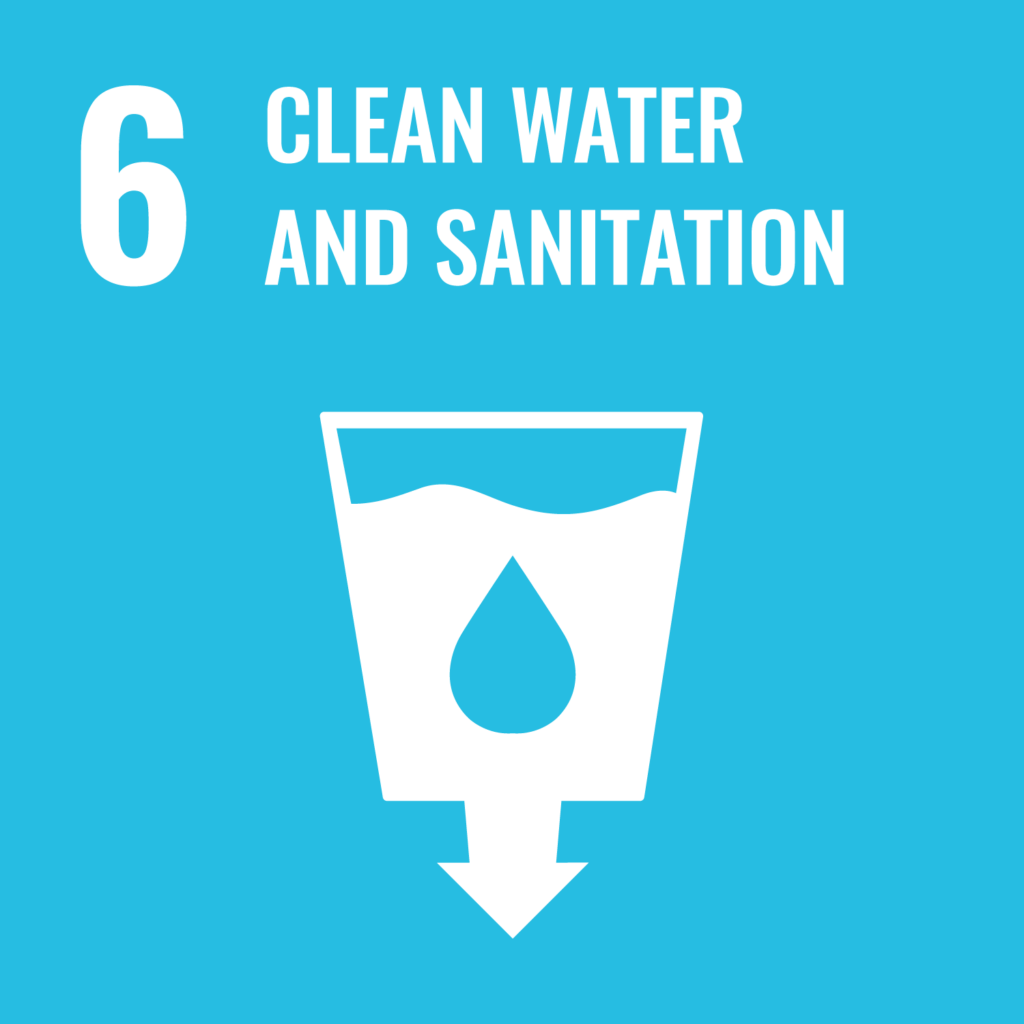
The installation of grease traps in buildings with shops or restaurants at Rajamangala University of Technology Srivijaya is an essential step in managing wastewater and preventing the discharge of harmful substances into the municipal sewer system.
Grease traps are installed in buildings to capture grease and food scraps that are present in wastewater, primarily from sinks and drain systems in cafeteria and food preparation areas. It starts by trapping grease from the sink, drain system and sending it to a large grease trap pond. After entering the grease trap, the wastewater is further treated in a large grease trap pond. This pond is subdivided into three sections which may contain food scraps and fats, is directed to the grease trap. These traps are designed to separate the grease and solid particles from the water.
Additionally, oxygen and microbial substances are added to the wastewater. This aeration process can help enhance the decomposition of organic matter, including fats and food scraps. The remaining water after treatment in the grease trap pond, which is now cleaner and has had much of the organic matter removed, is sent to treatment tanks within each building. These tanks may further treat the water to remove any remaining impurities.
The treated water from the building treatment tanks is then sent to a large water treatment pond. In this pond, additional treatment occurs, including aeration and the addition of microbial substances. The goal of these treatment processes is to maintain the water at a high-quality level, ensuring that it meets environmental standards and is safe to discharge.
After comprehensive treatment and quality control measures, the water is considered clean and safe. It is then discharged into the municipal sewer system. By treating the water to a high standard, the university helps prevent the introduction of pollutants into the municipal wastewater system, contributing to environmental protection and responsible wastewater management.

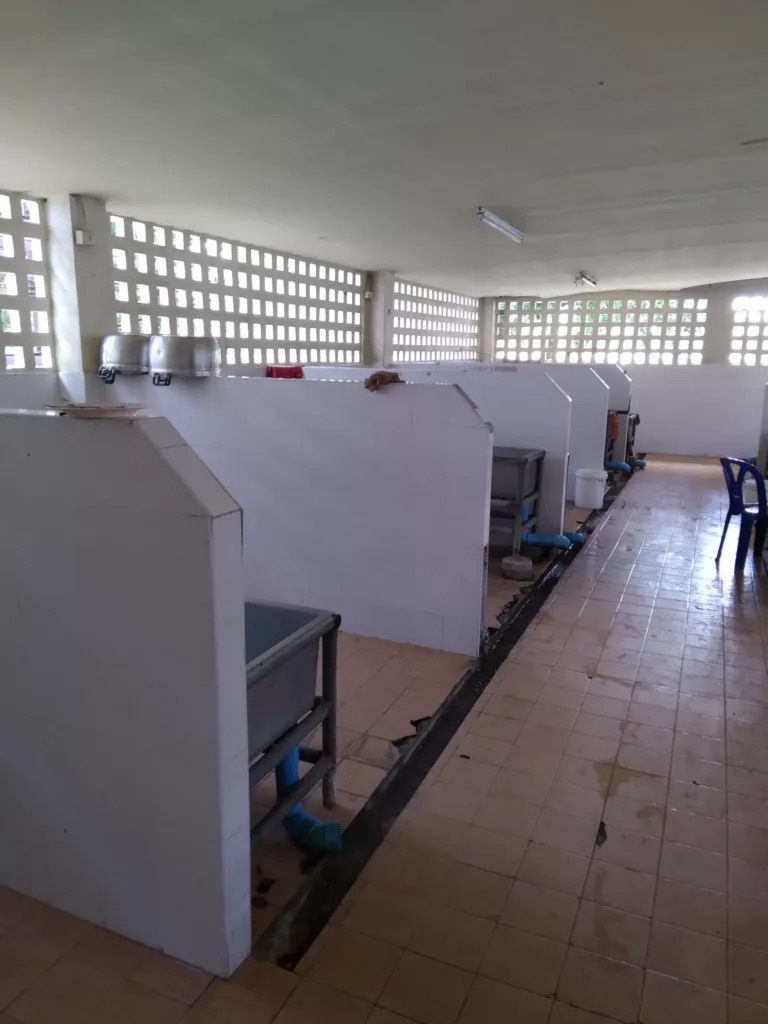

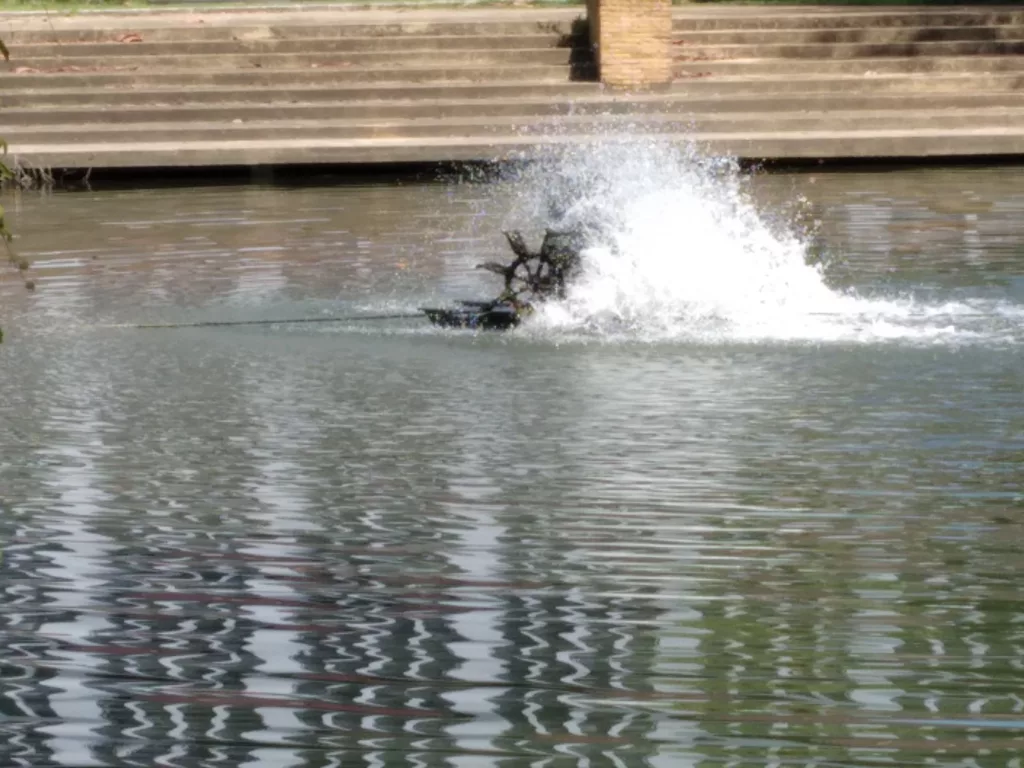
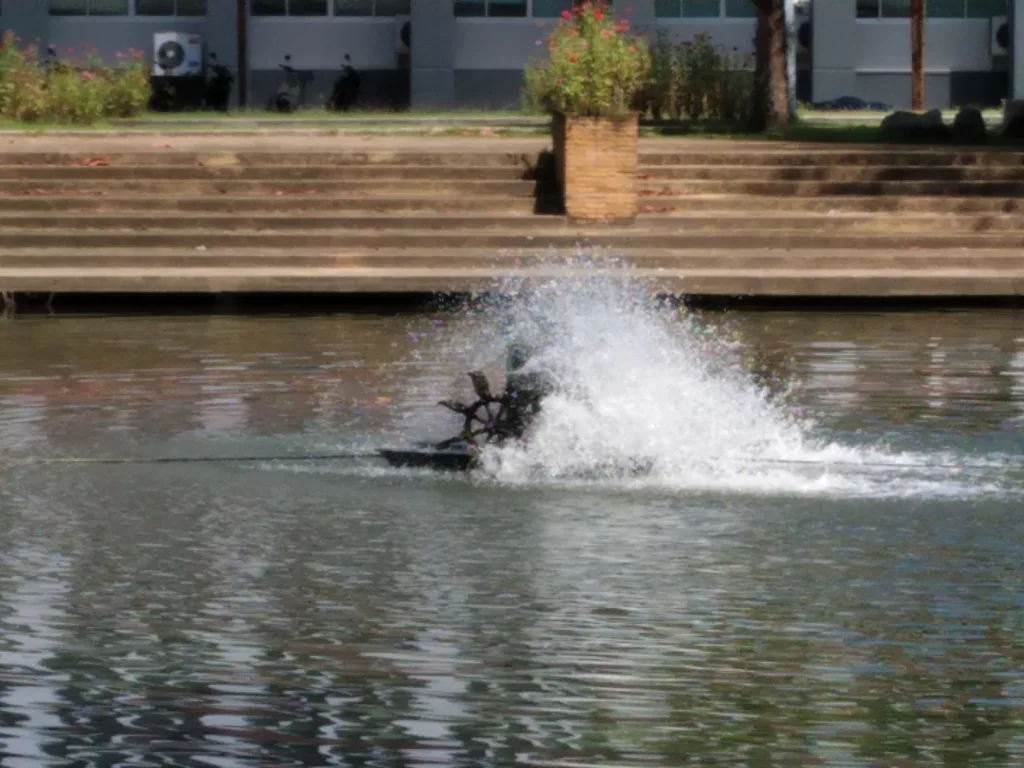
Related Links:
https://general.rmutsv.ac.th/node/1122?fbclid=IwAR336GfOj-cS0axEKjTNW1GDyFdFwQxpu4mM59Py_8SmUWCZoILzOkq9Mtg



